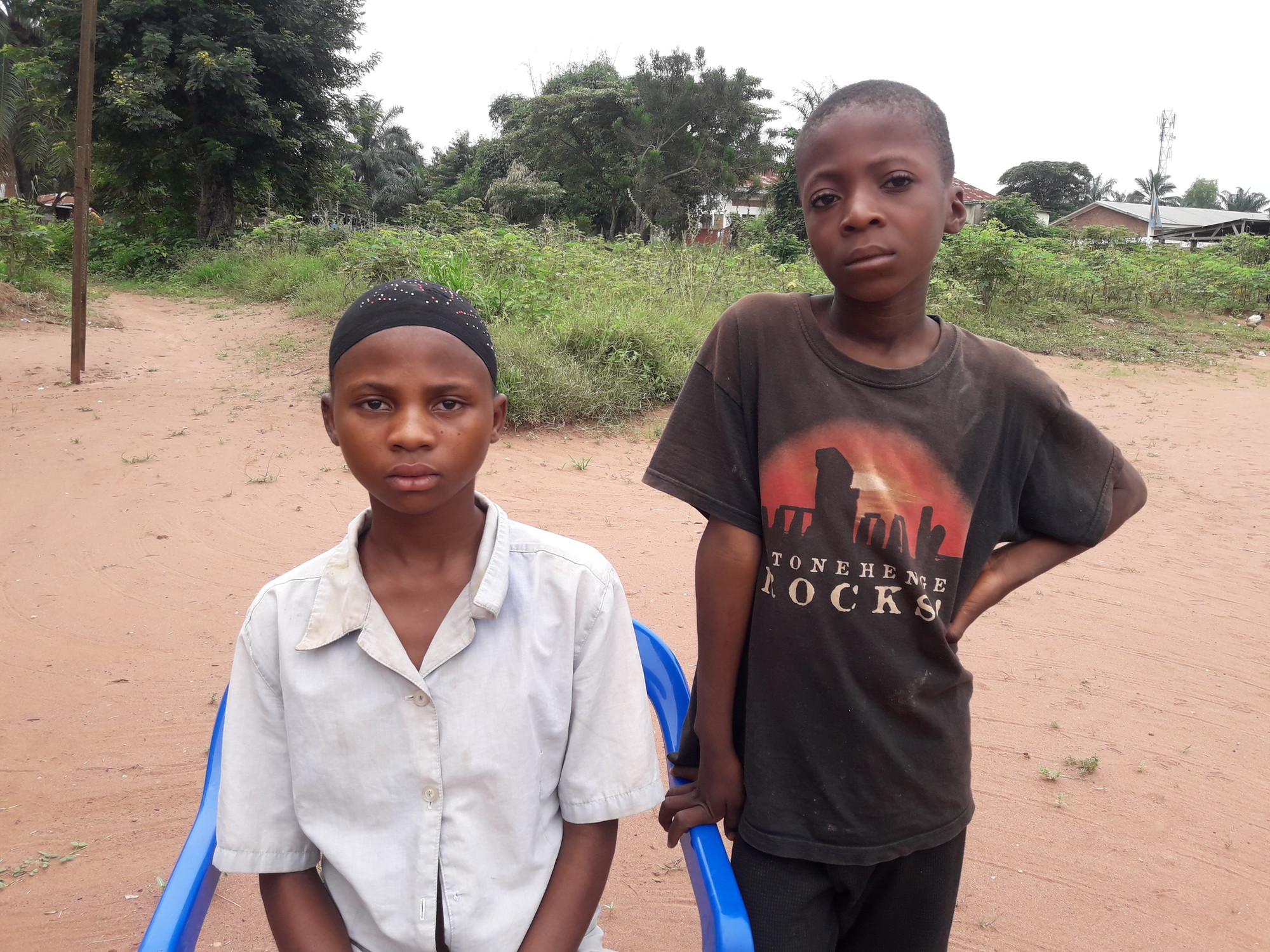Ten-yea-old Kanku Ngalamulume fled from his home in the village of Senge after armed groups beheaded his mother and father and his siblings too.
He was among 1.4 million people in the Kasai region of the Democratic Republic of the Congo who have been forced from their homes as violence among local militias and the Congolese military erupted in August 2016.
Through tears, Kanku told MCC’s representative Mulanda Juma that after his family’s death, he ran with other villagers into the bush. They traveled on foot for five hours to reach the city of Tshikapa, where Mama Agnès, another displaced person, has been taking care of him.
In February, when he spoke with Juma, Kanku said he felt hopeless.
“We eat only once a day in the evening. I have no hope, for any reason.”
This was before three local Anabaptist churches distributed food with the support of Mennonite Central Committee (MCC) and other Anabaptist groups (see list at the end of the story). From April to June, churches distributed flour, beans, oil and salt to 830 households and hygiene supplies to 1,000 women and girls.
The local churches include MWC members Communauté des Eglises de Frères Mennonites au Congo (CEFMC; Mennonite Brethren Church of Congo) working in Kikwit; Communauté Evangélique Mennonite (CEM; Evangelical Mennonite Church) in Kabwela; and Communauté Mennonite au Congo (CMCo; Mennonite Church of Congo) in Tshikapa.
In July, Kanku and Kapinga Ntumba, a 12-year-old girl who fled Kamonya village in April 2017, told MCC program manager Matthieu Abwe Luhangela that they were happy to receive the food distribution, but that more would be needed for the months ahead.
Kapinga also is an orphan who is trying to find her way after armed men killed her father and mother.
“I am taken care of by a lady whose name is Mary. We are living in a church down there in Tshikapa. I was at school before I left. I need to go to school,” Kaping told Juma in February.
The churches are responding to the need for education by paying school fees for more than 500 students. When school starts in September, the children also will have uniforms to wear and school supplies to use.
They will have more food too because the churches are supplying 1,180 households in Kabwela, Kikwit and Tshikapa with a five-month supply of food in August. The food, which is funded with $528,000 from MCC’s account at the Canadian Foodgrains Bank, will cover a gap in food consumption while households with access to land can prepare fields, plant and harvest crops.
Today, the number of displaced people from the Kasai region has decreased to about 900,000 people, but the conflict there has caused severe food insecurity in the area, affecting as many as 3.2 million people. According to UNICEF, as many as 400,000 children are at risk of dying from malnutrition.
The churches are working with MCC to develop plans for livelihood recovery initiatives to support families who are able to return home and for those who remain displaced. In addition, planning for peacebuilding and trauma healing is underway.
“Glory and honor to God for having, by his Holy Spirit, placed in you this sentiment of love which is an expression of active fellowship. My thanks and all of my gratitude go to our partners, who deliberately chose to feel the misfortune of the Congolese by bringing food aid,” says Jean Felix Cimbalanga Wa Mpoyi, president of CEM. “Your prayers always have a very positive impact in the life of our churches.”
Anabaptist organizations supporting these food and education distributions include Africa Inter-Mennonite Mission; Caisse de Secours (French Mennonite development arm); International Community of Mennonite Brethren (ICOMB); MB Mission; Mennonite Church Canada Witness; Mennonite Mission Network; Mennonite World Conference; and Konferenz der Mennoniten der Schweiz/Conférence Mennonite Suisse (Swiss Mennonite Conference).
—MWC release with files from MCC
Click here to support the ongoing response in Kasai
